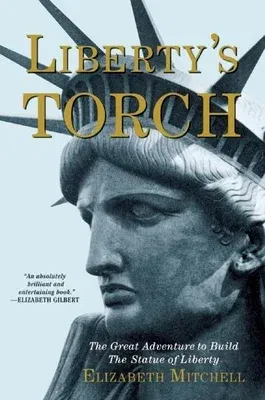The Statue of Liberty has become one of the most recognizable monuments
in the world: a symbol of freedom and the American Dream. But the story
of the creation of the statue has been obscured by myth. In reality, she
was the inspiration of one quixotic French sculptor hungry for fame and
adoration.
Inspired by descriptions of the Colossus of Rhodes, the young Frédéric
Auguste Bartholdi first envisioned building a monumental statue of a
slave woman holding a lamp that would serve as a lighthouse for
Ferdinand de Lesseps's proposed Suez Canal. But after he failed to win
this commission, and in the chaotic wake of the Franco-Prussian War,
Bartholdi set off for America, where he saw the perfect site for his
statue: Bedloe's Island in New York Harbor. Before long, he was
organizing the construction of a massive copper woman in a Paris
workshop. Through spectacular displays of the statue's arm and torch in
Philadelphia at the 1876 World's Fair, and the statue's head at the 1878
Paris Exhibition, along with other creative fundraising efforts,
Bartholdi himself collected almost all of the money required to build
the statue. Meanwhile, he brought luminaries including Gustave Eiffel,
Victor Hugo, Ulysses S. Grant, Joseph Pulitzer, and Emma Lazarus into
his scheme. Moving from the black waters of the Nile to the
revolution-torn boulevards of Paris, to the muddy streets of New York,
Liberty's Torch tells the story of an artist, entrepreneur and
inventor who fought against all odds to create this wonder of the modern
world.

